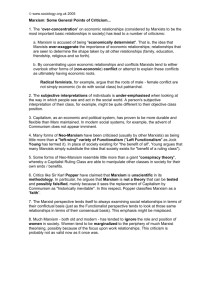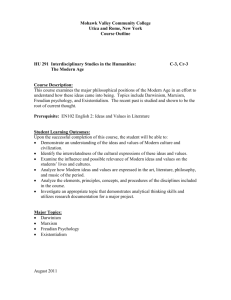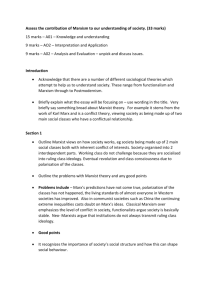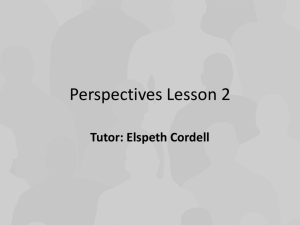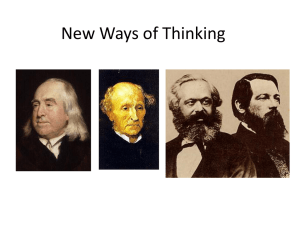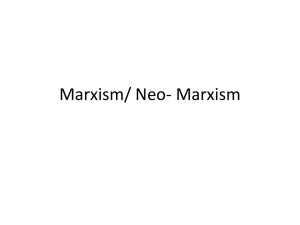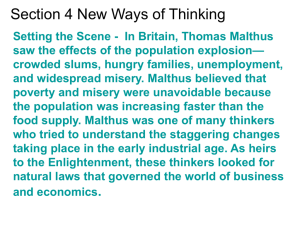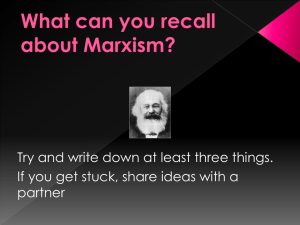AP US Government Const. Underpinnings Political Philosophy
advertisement
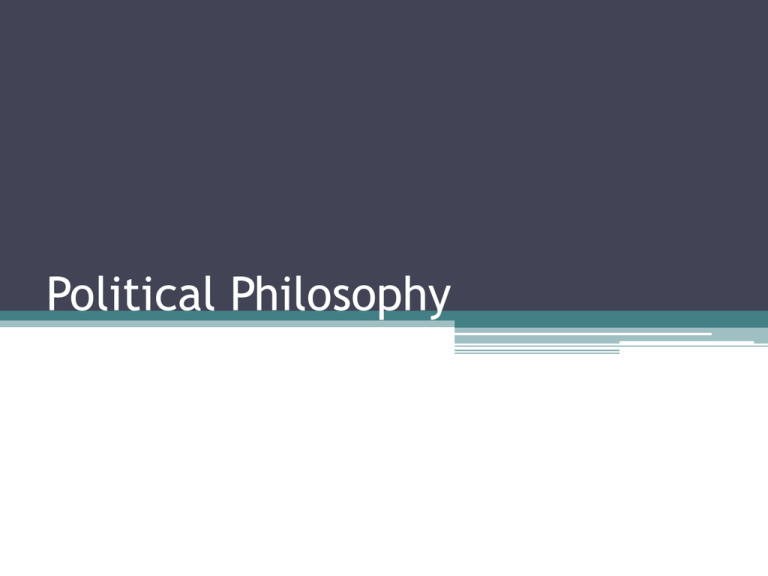
Political Philosophy Five Principles of American Democracy • • • • • Rule of Law Popular Sovereignty Respect for Individualism Equality of Opportunity Personal Liberty Rule of Law • The government and its officials and agents are accountable under the law. • The laws are clear, publicized, stable and fair, and protect fundamental rights, including the security of persons and property. • The process by which the laws are enacted, administered and enforced is accessible, fair and efficient. • Access to justice is provided by competent, independent, and ethical adjudicators, attorneys or representatives and judicial officers who are of sufficient number, have adequate resources, and reflect the makeup of the communities they serve. Popular Sovereignty • The doctrine that sovereign power is vested in the people and that those chosen to govern, as trustees of such power, must exercise it in conformity with the general will. Respect for Individualism • Respect for the moral worth of the individual. What does that mean? Equality of Opportunity • Every has the same chances. What are some examples of “Equality of Opportunity?” Personal Liberty • People can make decisions for themselves. You decide what you want to do with your gifts and your life. • If you are the greatest chess player in the world, you don’t have to play chess for a living. You can be a terrible bowler if you want to. • There are exceptions, however. If you are such a bad bowler that you consistently put people in danger, you may not be allowed to chase that particular dream… Majority Rule? • Doesn’t Majority Rule sound like it could be part of American Democracy? • It is, but only with a caveat: there have to be protections for the minority! These are the “collective rights”; things that every individual is entitled to. These things can’t be taken from any individual, even by a majority. • What are some examples? Four Concepts of Power Distribution • Marxism • Elitism • Bureaucratism • Pluralism Marxism • Those who own the means of production, controlling the economic system, will control the government. • Let’s begin with one basic principle: the world is materialistic. Proletariat and Bourgeoisie • The proletariat is a term used to identify a lower social class, usually the working class. • The Bourgeoisie describes a social class "characterized by their ownership of capital, and their related culture." Marxism • Marxism is a conflict theory which argues that society is characterized by disagreement and conflict between social groups. • Conflict is most noted between the Rich and the Poor, which in turn equals the powerful and the powerless. Marxism • Marxists argue that the way societies produce the goods that they need (Mode of Production) affects how a society treats its people. Marxism • Marxists argue against a society where a small number of people own the forces of production. This is essentially our society; one person owns a company in which many people work. Let’s play a game… • We need eight volunteers: ▫ Four of you will be capitalists: one CEO and three workers. ▫ Four of you will be Marxists: one supervisor and three workers. The workers must come up with as many words as they can think of that starts with the letter Mr. Geroe assigns them. • The CEO/supervisor may help any individual he wishes, but can only help one at a time. • Marxism • When dealing with Marxism, you first take into account the concept that money can be translated into power. This wealth division creates a class-system; the haves and the havenots. This class system is also unbreakable; the poor remain poor and the wealthy remain wealthy. Thus, workers live in a world of perpetual exploitation. Marxism • Marx proposed revolution by the subject class (the proletariat) towards Communism, where there would be no class system and everybody would be equal. Marxism • Laws, society, religion, and media are all designed to keep you focused on anything OTHER than the Bourgeoisie. • So while you’re watching Adventure Time, you don’t have time to realize that you could be earning a lot more than you currently do. Elitism • A few top leaders, drawn from the major sectors of the United States polity, will make all important decisions. Elitism • C. Wright Mills expressed the view of Elitism in his book: The Power Elite. Elitism • There are three majors groups of elites who set policy for most Americans, according to Mills: ▫ The Military Elite ▫ The Corporate Elite ▫ The Political Elite Elitism - Military In the United States, often our highest military officials make key decisions about our foreign policy. Though they are ultimately serving under the President as Commander in Chief, their advice is given incredible weight. These individuals are often long serving, and upon retiring will often enter politics or the corporate world. Elitism - Corporate Through their influence over the job market and the economy, to their power over Washington through the large amounts of money they can put into elections, Corporate leaders have far more say in our government than the average person. Elitism - Political ▫ Harvard University John Adams John Quincy Adams Rutherford B. Hayes (Law School) Theodore Roosevelt Franklin D. Roosevelt John F. Kennedy George W. Bush (Business School) Barack Obama (Law School) ▫ Yale University William Howard Taft Gerald R. Ford George H. W. Bush Bill Clinton George W. Bush Princeton University James Madison Woodrow Wilson Military Academy Ulysses S. Grant Dwight D. Eisenhower Jimmy Carter Bureaucratism • Appointed civil servants control the government, without consulting the public. • What are some important examples of government bureaucratic agencies that aren’t elected by the American people? Pluralist • Competition among affected interests shapes public policy decision-making ▫ People are powerful because they control various resources. ▫ Resources are assets that can be used to force others to do what one wants. ▫ Resources include money, prestige, expertise, experience, organizational position, media access, etc. ▫ Different levels of government with powers, too: local, state, federal. Pluralists • Power is widely spread, though not necessarily equally. ▫ Rush Limbaugh is certainly more influential in conservative groups than is David Brooks. But both can have impact on the Republican Party in their own way. • Pluralists argue people use their resources to compete for power. This power is used by individuals and organizations to promote their own self-interest. • Doe this theory help us understand why monopolies can be dangerous? Discussion • Which power structure do you subscribe to? Marxism? Pluralism? Elitism? Bureaucratism? None of the above? Explain why? ▫ It’s okay to say Marxism. That doesn’t make you a communist. We’re talking about observations of power, not how you think the country should be governed. I’ve met Marxists who aren’t communists.
